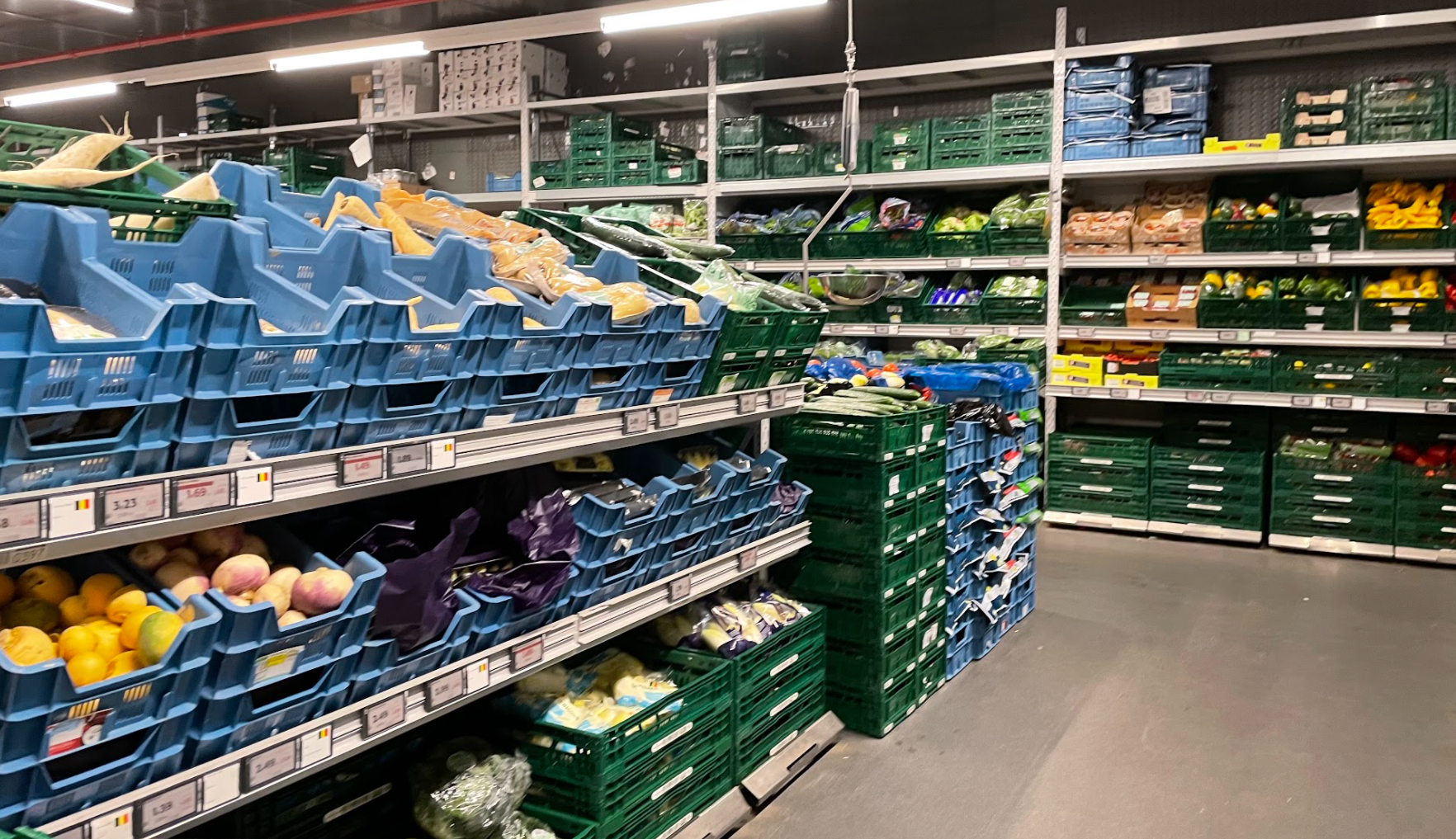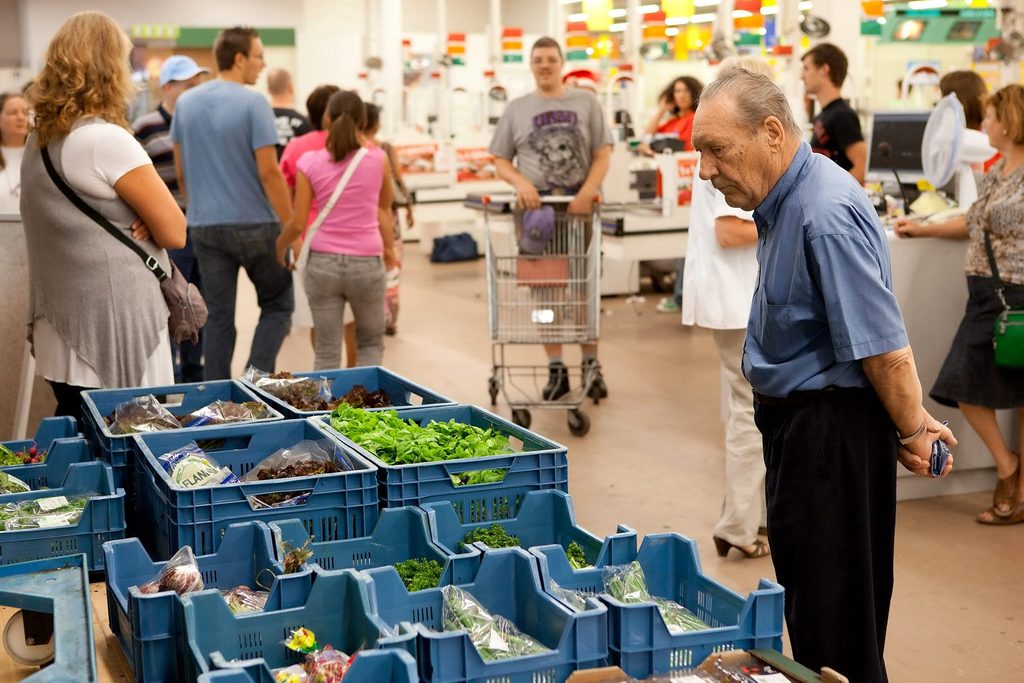Supermarket inflation in Belgium has dropped to the same level recorded seven months ago, but many product prices are still rising.
For the fourth month in a row, the prices of groceries in Belgian supermarkets have been dropping. Since reaching a record of 20.6% in March this year, food inflation dropped to 17% in June and has now further slumped to 15.4%, according to the most recent analysis of 3,000 products by consumer protection organisation Test Achats. This means people pay on average 15.4% more for a single product in the supermarket than in 2022.
"That inflation is already falling for the fourth month in a row is good news, but does not take away from the fact that many products are still increasing in price, even though commodity and energy prices have been falling on the international market for several months," Test Achats noted in a statement.
It reiterated its demand made last month for the government to further investigate the possibility of grab inflation, where companies boost profits during inflationary periods with unnecessary price hikes, to the detriment of consumers.
Costly carrots
As was the case in July, the increase in price is strongest for all types of vegetables, which on average are 33% more expensive than this time last year.
"Carrots in particular have become expensive over the past year: you now pay no less than 73% more for them than last year. In two years, they have become 87% more expensive. Besides carrots, onions (+58%) and cauliflower (+29%) stand out," Test Achats noted.
The cost of processed food such as ketchup (+44%), mustard (+39%), frozen chips (38%) and tomato puree (+35%) also increased, while toilet paper, kitchen rolls and tissues have increased by a quarter in price over the past year, and on average 59% more expensive than two years ago.

Fresh products in a grocery store in Belgium. Photo by Helen Lyons/The Brussels Times.
As the organisation stressed in past reports, global grain prices have fallen since October 2022, but this is not yet reflected in supermarket prices. Of the 36 pasta products that Test Achats compared, 28 have become more expensive since October 2022.
The international price for basic raw materials for dairy products has also fallen significantly over the past year, but cheeses and milk are still almost one-fifth more costly. "This month too, we have to conclude that consumers in the supermarket do not notice any international price drops," said Ortwin Huysmans, spokesperson for Testaankoop.
The organisation did note that prices overall remained more or less stable compared to last month. The organisation estimates that a family of two spent an average of €531 at the supermarket in July, just €1 more than for the same cart last month. "But this is still €71 more than a year ago."
International comparison
Findings of the Belgian Prices Observatory, which compared the country's food prices with those in neighbouring countries, highlighted that in the second quarter, food inflation in Belgium was higher than in France, The Netherlands and Germany.
In Belgium, food products were 14.2% more expensive between the beginning of April and the end of June than a year ago, but the Prices Observatory stated that all in all, there were relatively small differences. "Among our neighbours, the Netherlands achieved the lowest food inflation in the second quarter, at 12.9%. In Germany, this inflation was 13.9%, followed by France (13.8%).
The report also highlighted that the difference was mainly related to the prices of fresh vegetables, fruit, meat or fish. "Especially the inflation of vegetables was higher in Belgium. It reached 21.5% in the second quarter, while the average for neighbouring countries was 16.6%."
Despite this persistent food inflation, the total inflation in the second quarter of 2023, measured on the basis of the Harmonised Index of Consumer Prices (HICP), dropped sharply, with the figure returning to pre-Ukraine war levels at 2.6%, similar to the level recorded in the second quarter of 2021.
Belgian inflation is now also much lower than that in neighbouring countries: according to the European definition, the July figure was even the lowest in the whole euro area. The Prices Observatory noted this was mainly related to the "very sharp fall in energy prices" (by 32% on average). These have fallen less in neighbouring countries, partly due to fewer variable contracts.
Meanwhile, underlying inflation in Belgium, which excludes inflation for energy and unprocessed food, was still 8.1% in the second quarter, higher than in Germany (7.2%) and France (6.4%).


